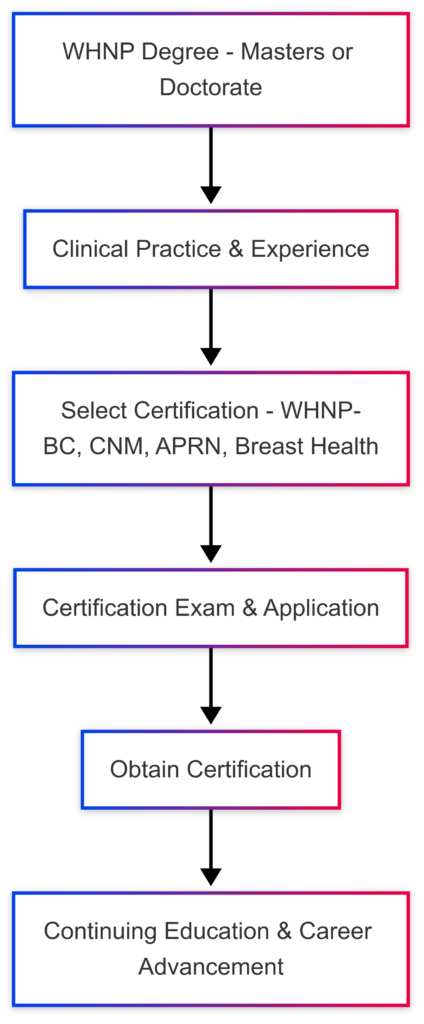Georgia is rapidly becoming a hub for advanced practice nursing, particularly for those specializing in women's health. With its mix of metropolitan medical centers, suburban clinics, and rural outreach programs, the state offers diverse opportunities for Women's Health Nurse Practitioners (WHNPs). Whether you're newly certified or an experienced provider, Georgia's healthcare landscape is primed for WHNPs ready to make a meaningful impact.
Women's health continues to be a critical component of healthcare delivery, and Georgia's high demand for WHNPs reflects national trends. According to the U.S. Bureau of Labor Statistics, the employment of nurse practitioners is projected to grow 38% from 2022 to 2032, much faster than average. In Georgia specifically, workforce shortages in underserved counties and expanded telehealth initiatives have further fueled demand.
This guide highlights 25 top WHNP job opportunities in Georgia, including a mix of clinical, academic, and public health roles. You'll also find insights into average salaries, hiring organizations, and how to prepare for your application.
What to Expect From WHNP Jobs in Georgia
Understanding the employment landscape for WHNPs in Georgia can help you narrow your job search and identify roles that best suit your interests and goals. The state's healthcare employers range from cutting-edge hospitals to mission-driven community clinics.
Common Work Settings:
Georgia offers a broad range of settings for WHNPs to deliver care, each with its own pace, patient population, and opportunities for professional development. These environments allow nurse practitioners to focus on preventive care, reproductive services, and chronic disease management tailored to women across all life stages.
- OB/GYN private practices
- Reproductive health clinics
- Maternal-fetal medicine departments
- Federally Qualified Health Centers (FQHCs)
- Academic medical centers
- Correctional health facilities
In-Demand Skills:
WHNPs are expected to deliver a broad scope of care that emphasizes prevention, diagnosis, and treatment specific to women’s reproductive and overall health. Mastery of these core skills ensures comprehensive, patient-centered care across diverse populations.
- Routine gynecological exams
- Family planning and contraception counseling
- Prenatal and postpartum care
- STI screening and treatment
- Health education and advocacy
- Cultural competency and trauma-informed care
Employers value WHNPs who can work independently, collaborate across disciplines, and contribute to quality improvement initiatives.
Average Salary for WHNPs in Georgia
Knowing what to expect in terms of compensation can help you make informed career decisions. WHNP salaries in Georgia vary depending on experience, employer type, and geographic location.
| Experience Level | Average Annual Salary |
| Entry-Level (0-2 yrs) | $88,000 – $95,000 |
| Mid-Career (3-7 yrs) | $96,000 – $110,000 |
| Experienced (8+ yrs) | $112,000 – $125,000+ |
Urban centers like Atlanta, Augusta, and Savannah tend to offer higher wages and more comprehensive benefits. Rural employers may offer additional incentives such as sign-on bonuses, housing stipends, or federal loan repayment eligibility.
Top Employers Hiring WHNPs in Georgia
A number of prominent healthcare organizations in Georgia regularly hire WHNPs. These institutions offer positions in both inpatient and outpatient care, with some also supporting academic or research functions.
Here are examples of major employers that support women’s health NP roles:
- Emory Healthcare
- Wellstar Health System
- Augusta University Health
- Grady Health System
- Northside Hospital
- Piedmont Healthcare
- Planned Parenthood Southeast
- Georgia Department of Public Health
These organizations value providers with a passion for women’s health and a commitment to serving patients across diverse communities.
25 Women's Health NP Job Listings in Georgia
The following is a curated list of 25 WHNP job opportunities across Georgia. These listings offer a sense of the variety of roles available by location, setting, and focus area. Always confirm current availability by visiting the employer's career page.
| Job Title & Location | Key Details |
| WHNP – Northside Women's Specialists (Atlanta, GA) | Full-scope outpatient care in OB/GYN setting |
| Advanced Practice Provider – Emory Reproductive Health | Academic, fertility-focused practice |
| WHNP – Augusta OB/GYN Associates (Augusta, GA) | High-volume clinic with CME benefits |
| Telehealth WHNP – Georgia Women's Wellness Network | Remote care for rural patients |
| WHNP – Albany Area Primary Health Care | Community clinic with underserved populations |
| Nurse Practitioner – Planned Parenthood Southeast (Columbus) | Reproductive health and patient education |
| WHNP Faculty Position – Mercer University (Macon, GA) | Academic teaching and clinical supervision |
| OB/GYN NP – Grady Health System (Atlanta, GA) | Public hospital, maternity focus |
| WHNP – Women's Center of Excellence (Savannah, GA) | Clinical leadership opportunity |
| WHNP – Wellstar Health System (Douglasville, GA) | Team-based care model |
| Community Health WHNP – Center for Black Women's Wellness | Culturally responsive outreach work |
| WHNP – Piedmont OB/GYN (Athens, GA) | Relocation and sign-on incentives |
| WHNP – Georgia Department of Public Health | Statewide maternal health programming |
| Per Diem WHNP – Peachtree Perinatal Associates (Atlanta, GA) | Flexible schedule in perinatal subspecialty |
| OB/GYN NP – Southeast Georgia Health System (Brunswick, GA) | Competitive pay, coastal living |
| WHNP – Gwinnett OB/GYN (Lawrenceville, GA) | Diverse patient mix |
| WHNP – Augusta University Health | Academic hospital, research-oriented |
| WHNP – Georgia OB/GYN (Cumming, GA) | Integrative, holistic model |
| WHNP – South Georgia Medical Center (Valdosta, GA) | Sign-on bonus and relocation support |
| WHNP – Coastal OB/GYN Associates (St. Marys, GA) | Blend of outpatient and inpatient care |
| WHNP – OB/GYN Associates of West Georgia (LaGrange, GA) | Supportive team with mentorship |
| WHNP – Athens Women's Clinic (Athens, GA) | Collaborative APP-physician care model |
| WHNP – Atlanta Women's Healthcare Specialists | Specialized in menopause and urogynecology |
| WHNP – Family Health Centers of Georgia (Atlanta, GA) | Federally funded, community-based care |
| WHNP – Northeast Georgia Health System (Gainesville, GA) | Expanding women's health department |
How to Apply
Landing your ideal WHNP role in Georgia involves more than just submitting a resume. A strategic and well-prepared application can help you stand out to hiring managers.
Here are a few actionable tips:
- Tailor your resume to highlight clinical competencies in OB/GYN, sexual health, and preventive care.
- Verify Georgia licensure via the Georgia Board of Nursing and secure APRN credentials.
- Include strong references who can speak to your clinical experience and interpersonal skills.
- Use a targeted cover letter to express alignment with the organization's mission.
- Follow up after submitting to demonstrate professionalism and enthusiasm.
Networking through state NP associations and attending Georgia-based nursing conferences can also yield job leads.
Ready to Launch Your WHNP Career in Georgia?
Georgia presents a vibrant and expanding market for Women's Health Nurse Practitioners. Whether you aim to serve rural patients via telehealth, educate future providers, or lead clinical innovation in urban hospitals, there is a role for you in the Peach State.
With growing demand, competitive salaries, and a wide range of practice settings, now is a great time to explore WHNP jobs in Georgia. Start by reviewing the employers listed, preparing a strong application, and connecting with local nursing networks. Your next career move could be just a click away.











